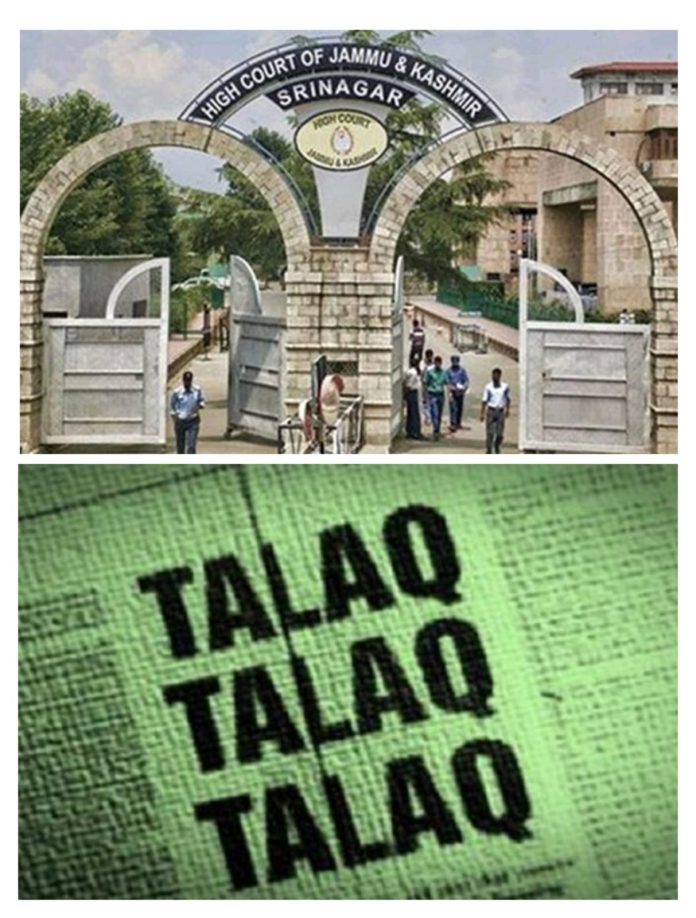14 July 2024: Srinagar: In a landmark ruling, the Jammu & Kashmir High Court has determined that the simple pronouncement of the word ‘Talaq’ three times by a husband does not suffice to dissolve a Muslim marriage. Justice Vinod Chatterji Koul delivered this significant judgment, highlighting the complexities and necessary procedures involved in a valid Islamic divorce.
The case in question involved an estranged wife who secured an ex-parte maintenance order in 2009, which the husband challenged. The dispute eventually reached the High Court, leading to its remittance to a trial court in 2013. The trial court, in February 2018, ruled in favor of the husband, declaring the couple no longer married. However, an additional session court overturned this decision and mandated the husband to pay a monthly maintenance of Rs 3,000 to the wife. The husband subsequently challenged this order in the High Court.
In his submissions, the husband clarified that he did not engage in instant triple talaq, which the Supreme Court had declared unconstitutional in the Shayara Bano case. He also presented a Talaknama (divorce deed) to support his claims. However, the High Court was unpersuaded by these arguments.
Justice Koul emphasized that for a divorce to be valid, several conditions must be met beyond the mere utterance of ‘Talaq’ three times. These include pronouncing ‘Talaq’ at specific intervals, the presence of witnesses, and attempts at reconciliation. The court stressed that the pronouncement must occur during a period of tuhr (between two menstrual cycles) without any sexual relations during this time.
The judge noted that the husband must prove efforts were made by representatives of both parties to resolve the marital dispute, that there was a genuine reason for the divorce, and that it was pronounced in the presence of just witnesses. The court also insisted on strict proof of these conditions to prevent husbands from evading their obligations under the marriage contract, including maintenance.
Justice Koul cited the High Court’s 2012 ruling in Mohammad Naseem Bhat v/s Bilquees Akhter to support his judgment, underscoring the necessity for a meticulous approach to validating a divorce.
However, the reaction of the Muslim community and Muslim organisations is yet to be ascertained on this judgement and its wider implications.




